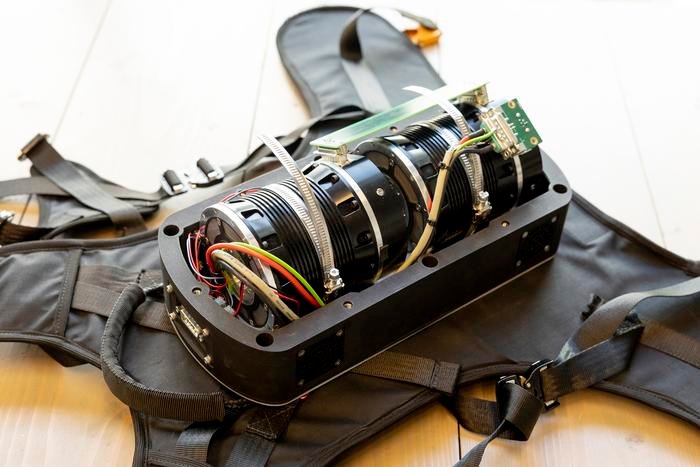Researchers at Radboud University Medical Center have developed a wearable device that could significantly improve mobility and independence for people living with ataxia—a neurological condition that impairs coordination and balance. The device, called the “Gyropack”, is a backpack equipped with gyroscopic technology originally developed for aerospace applications.
Ataxia affects the cerebellum, the part of the brain responsible for motor coordination. Individuals with moderate to severe ataxia often rely on walkers or other mobility aids, which can be bulky, stigmatizing, and difficult to use—especially for younger patients. The Gyropack offers a novel alternative: it uses spinning wheels inside the backpack to generate resistance against unwanted torso rotation, helping stabilize posture and reduce the risk of falls.
The technology behind the Gyropack is inspired by systems used to maintain orientation in satellites and space stations. When adapted for medical use, the gyroscopes inside the backpack counteract sudden shifts in body movement, providing subtle but effective support for balance. The device has been in development for over a decade by teams at TU Delft and Erasmus MC, and was recently optimized for clinical testing with Radboud’s rehabilitation specialists.
In a controlled study, 14 patients with degenerative ataxia performed walking and balance exercises under three conditions: without the backpack, with the gyroscopes active, and with the gyroscopes spinning but not providing support (a sham condition). Even in the sham mode, the backpack’s weight—around six kilograms—offered some stabilization. However, the most significant improvements were observed when the gyroscopes were fully operational. Patients were visibly more stable and able to walk in a straight line more effectively.
Article from Radboud UMC: Innovative backpack enhances stability for people with ataxia
Abstract in npj Robotics: Gyroscopic wearable improves balance performance in people with degenerative ataxia – a sham-controlled robotics study

